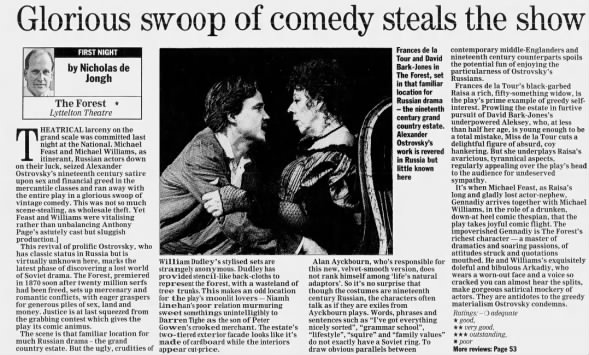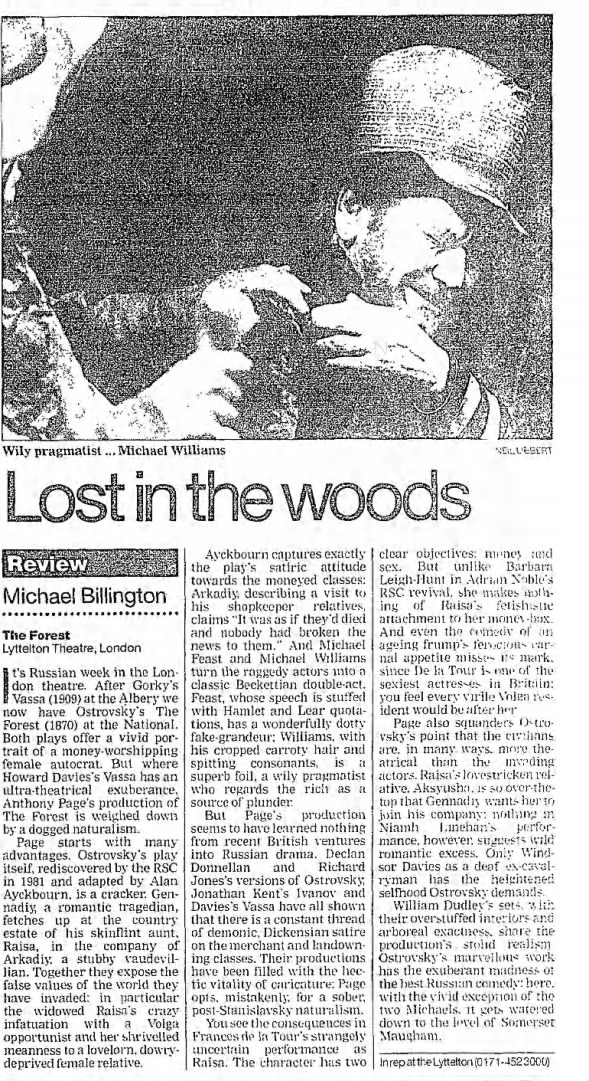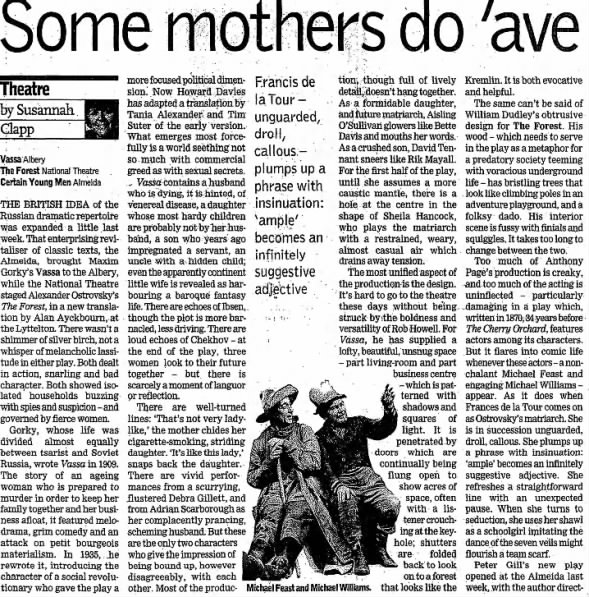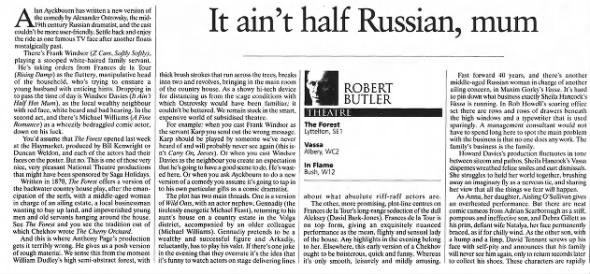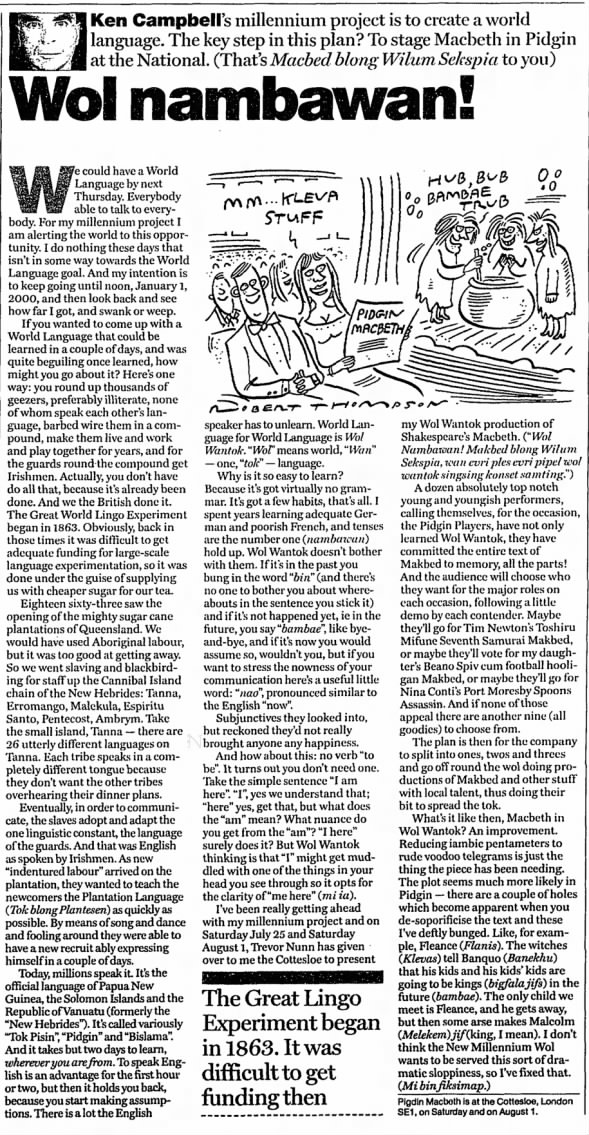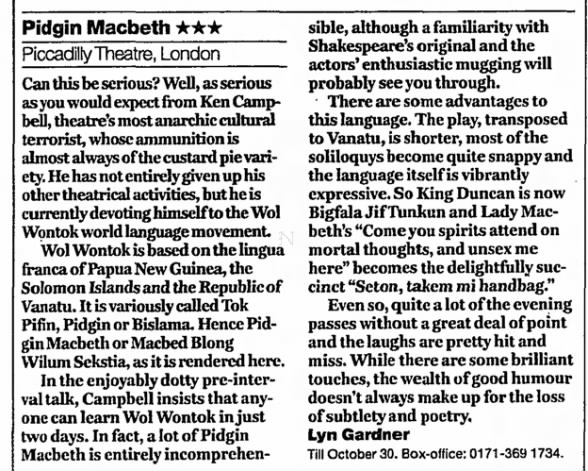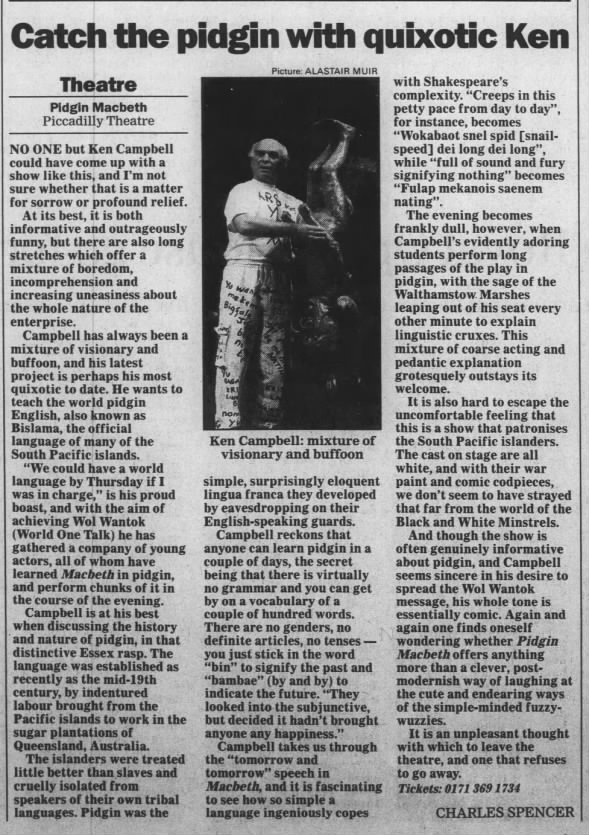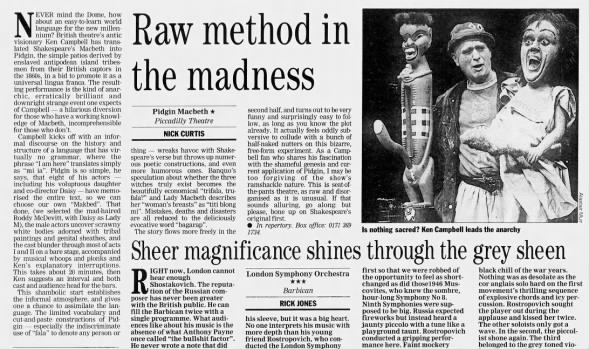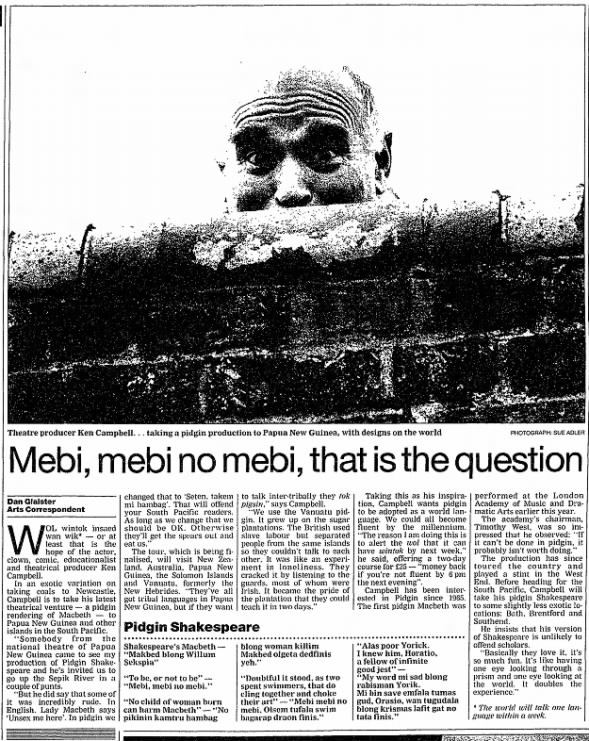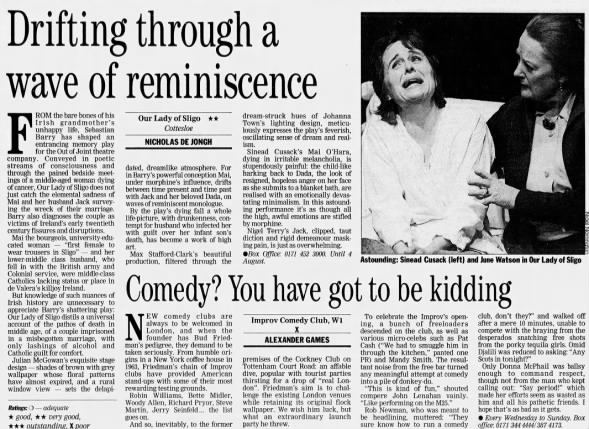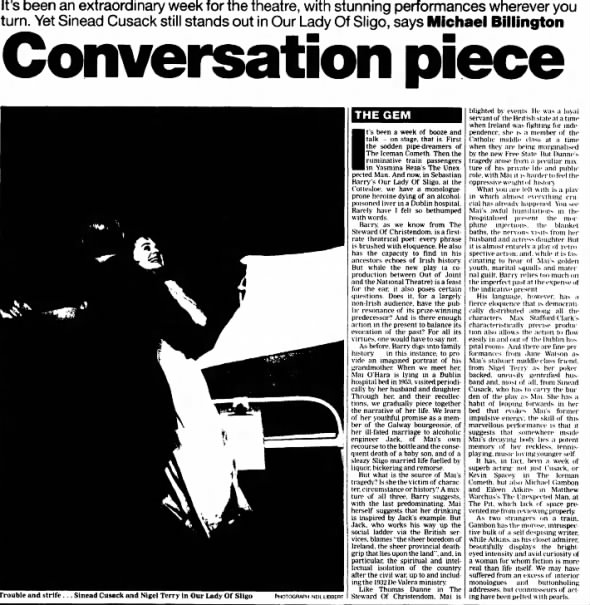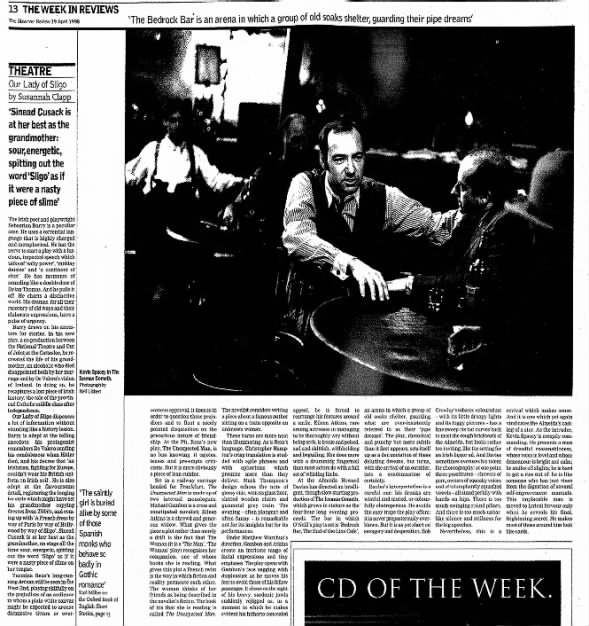“I can’t talk now, darling, I’m performing at the National”
Yes, this was the night that I and several others from Threadmash performed at the National Theatre.
Threadmash Begets NashMash
Threadmash is one of Rohan Candappa’s bright ideas. We have been meeting on and off for five years now, writing short pieces to order and then performing them to each other (and occasionally also to invitees). Here is a link to my write up of the first event, which includes my first Threadmash piece:
The idea needed to morph into ThreadZoomMash during the pandemic and now seems to have retained the capital M for mash. If you are a real glutton for this sort of thing, this link here is a tag for all of the ThreadMash pieces on Ogblog, which will include this one.
Anyway…
…Rohan decided to try the National Theatre foyer bars as a venue this time around – cunningly timed with two quite long plays at the Olivier and Lyttelton both starting at 19:30. That gave us ample time to perform in the relative quiet between the start of the plays and the intervals.
The relative quiet was rather noisily broken by the bar staff hoovering up around us, very early in the reading of Geraldine’s piece, but we’ll put that temporary disturbance aside. The venue worked.
And we can all honestly claim now that we have performed at The National Theatre.
Rohan threaded our pieces together, as is his way. In this instance, with the topic “The Phone Call”, Rohan’s thread covered Alexander Graham Bell‘s innovation, the practical telephone. Also the contribution of the lesser known but colourful Florentine, Antonio Meucci, who largely invented that communication method before Bell, but was too polite to patent the critically novel elements of the technology he had discovered.
Geraldine’s piece came first. A charming throwback to 1973, Geraldine recounted her mother’s almost infeasibly regular long-distance calls to Geraldine (who had escaped to New York). Geraldine’s mum persistently tried, in vain, to persuade her daughter to return to “Hicksville” and resume the “normal” life into which Geraldine had, to her mother’s perception, been born.
Rohan then reminded us all that Alexander Graham Bell’s first phone call was to an employee who awaited his call…
Mr. Watson—Come here—I want to see you
…starting the mighty tradition of bosses using such devices to issue instructions to underlings.
Rohan was rather sniffy about my ability to follow a simple instruction – i.e. to write a story about a phone call. I cannot imagine what Rohan’s beef might have been.
The Phone Call by Ian Harris
We don’t go out so much anymore. Not since the pandemic. It’s not a fear of infection or anything like that. It’s just that we have got out of the habit. It now takes something especially interesting or unusual to lure us back to the theatre or concert hall. One such interesting concert caught our eyes recently – a concert of African chamber music at the Wigmore Hall, led by Tunde Jegede, who is both a virtuoso kora player and a classically-trained cellist. The kora is a large West-African 21-stringed plucking instrument, sometimes described as a cross between a lute and a harp. Janie and I like the Wigmore Hall. It is one of the few remaining public spaces where we still normally bring down the average age of the audience quite significantly. But we soon saw, on arrival at the Wigmore Hall for the kora concert, that this audience was different. Only sparsely populated with “the usual suspects”, the average age of the audience was, horror of horrors, below ours. The front row still had a comfortingly senior look. Next to Janie was a beaming, white-haired woman you might have got from central casting had you requested “a left-over hippy”. The woman was very friendly and chatty – clearly not part of the regular front row mafia. Familiar with the kora – she had spent time in West Africa when younger – she was a fan of Tunde Jegede’s playing but had not previously managed to see him play live. She was, as the young folk say, super-excited. The first half of the concert was truly magical. Tunde had brought with him a posse of chamber musicians from Lagos, together with a wonderful percussionist. We were transported by the music, not least the entrancing sound of Tunde’s kora-playing. During the interval, our friendly neighbour said that she was delighted with the live music experience and thrilled that we had enjoyed it. She recommended and wrote down the names of a couple of Tunde’s albums for us to follow up, which we did. I wondered what those silky-sounding kora strings are made of. Our otherwise-expert neighbour didn’t know. More or less at that moment, Tunde came on to the stage to rearrange the setting for the second half of the concert. As he was standing, with his kora, about three yards away from me, it seemed only polite to ask him about the strings. I was expecting the answer to be something along the lines of, “skin from an antelope’s anus or a sitatunga’s scrotum“. But instead, Tunde simply said, “Nylon”. “Just Nylon”, I asked, hoping for more enlightenment. “Just Nylon”, said Tunde, gently. The second half of the concert was also good but less to our taste. Tunde didn’t play his kora – instead he demonstrated his skills as a cellist. The fusion theme was retained, as the pieces were arrangements of traditional African music, but to us the real magic had been the kora. I tried to work out the common theme in Tunde’s unusual choice of devices for his multi-instrumentalism. I concluded that Tunde likes making music while holding his instrument between his legs. 525 WORDS
I smiled to myself as I hit the save button and e-mailed my piece to Rohan Candappa for review.
Ninety minutes later, my iPhone buzzed.
It was Rohan.
“Ian, old chap”, said Rohan. “A charming vignette, but it has nothing to do with the subject and title – The Phone Call”.
“I beg to differ”, I said. “The piece is absolutely about The Phone Call”. The introductory story about the kora concert is a MacGuffin. The main story is about the phone call.
“Well”, said Rohan, “I did consider e-mailing you, but then…”
“…never explain”, I interrupted. “You and I have collaborated on and off for over 50 years now, Rohan. Many things don’t need to be said.”
I pressed the “end call” button.
Returning To NashMash
It seemed that everyone else was able to understand and obey a simple instruction from Rohan…even Jan.
Strangely, Jan, like Geraldine, had set her story in 1973. Without conferring. The central conceit of Jan’s story, which revolved around an uprooted little girl whose family had recently moved to a different town, was a troubling phone call aimed at one or both parents, inadvertently picked up by the little girl.
Similarly strange was the structural similarity between Jan’s and Julie’s story, which was also about a troubling phone call picked up by someone other than the intended recipient of the call. Julie’s was not set in a particular bygone year, but the details within the story suggested 1970s as well.
David’s story was about a character who bought a vintage GPO rotary telephone through the internet and, as a result, got a phone call more than he had bargained for.
All of The Phone Call stories were charming, thought-provoking and enjoyable to hear. It was also very pleasing to spend time with the ThreadMash gang again, even though we were a somewhat depleted group on this occasion.
Sadly, Kay, who was going to join us, was unable to attend due to the recent death of her mother. Yet Kay made a charming contribution to the collection of stories by e-mail a couple of days later:

They say a picture is worth a thousand words and my goodness that picture of Kay’s is worth at least that many. But Rohan had instructed us to limit our stories to a maximum of 800 words. Honestly, some people can’t comply with the simplest of instructions from the ThreadMaster.





























